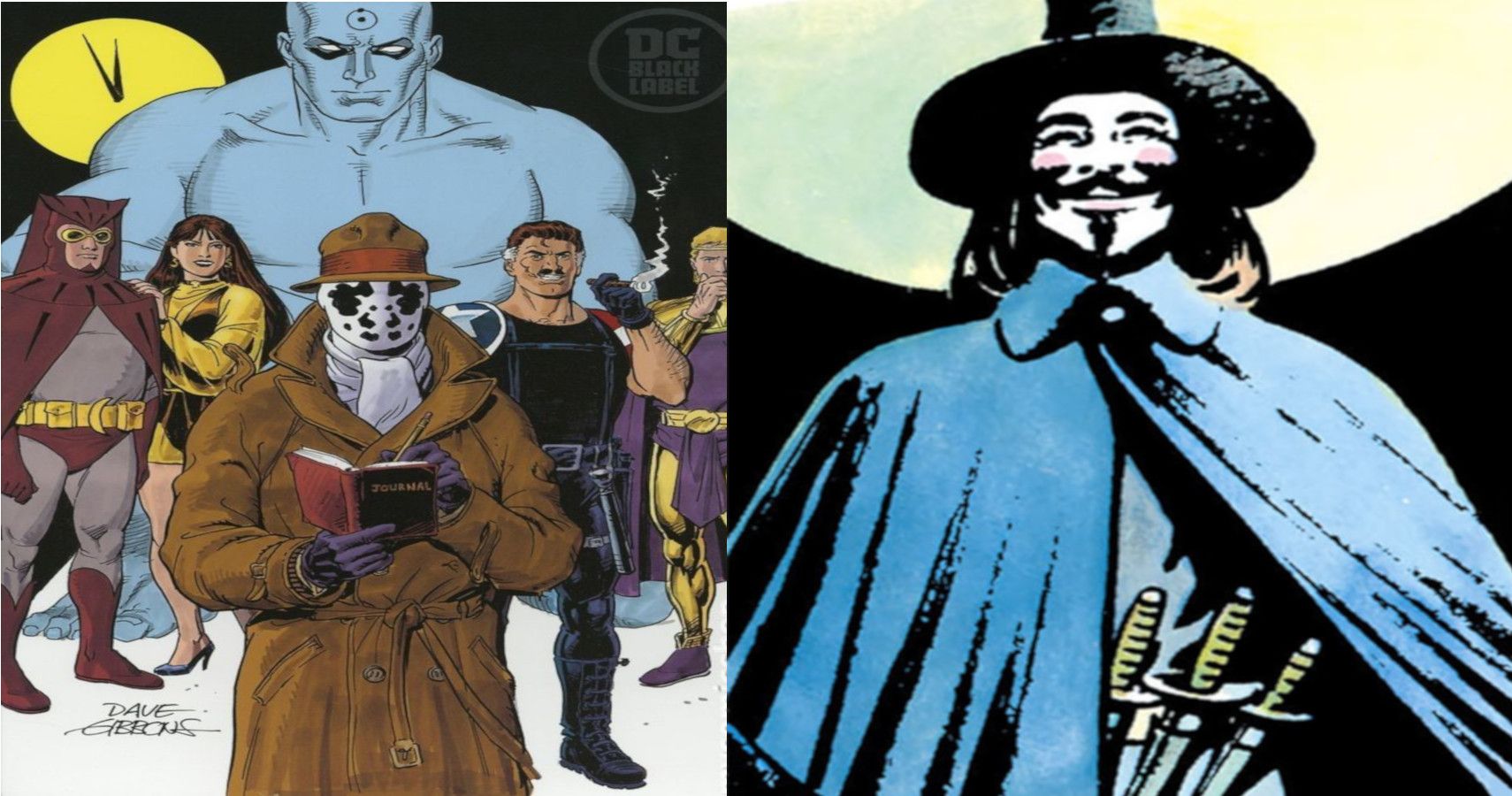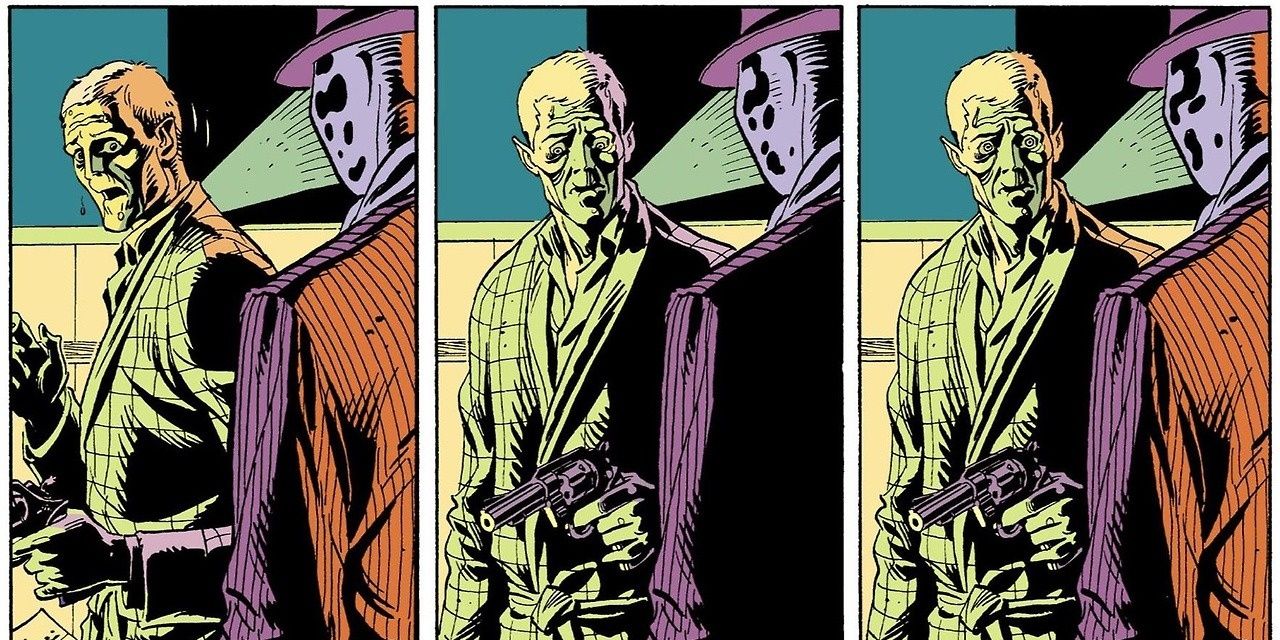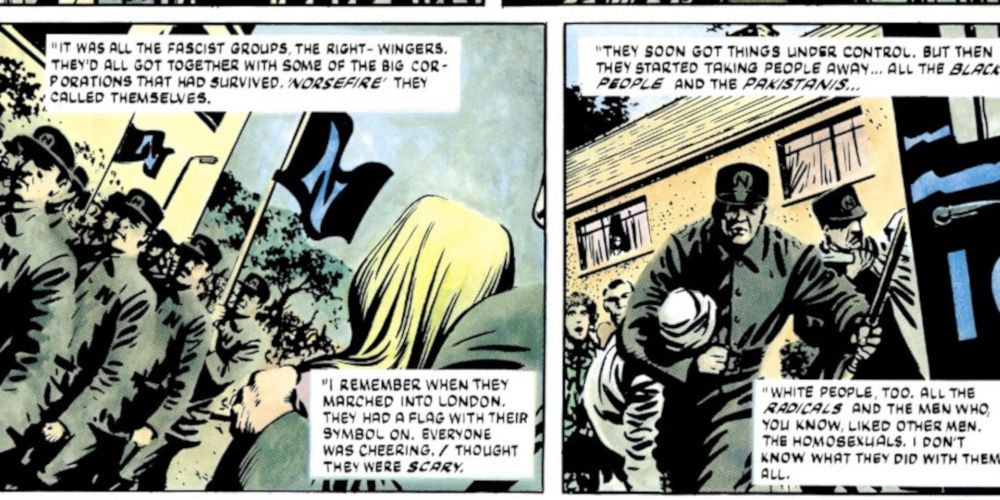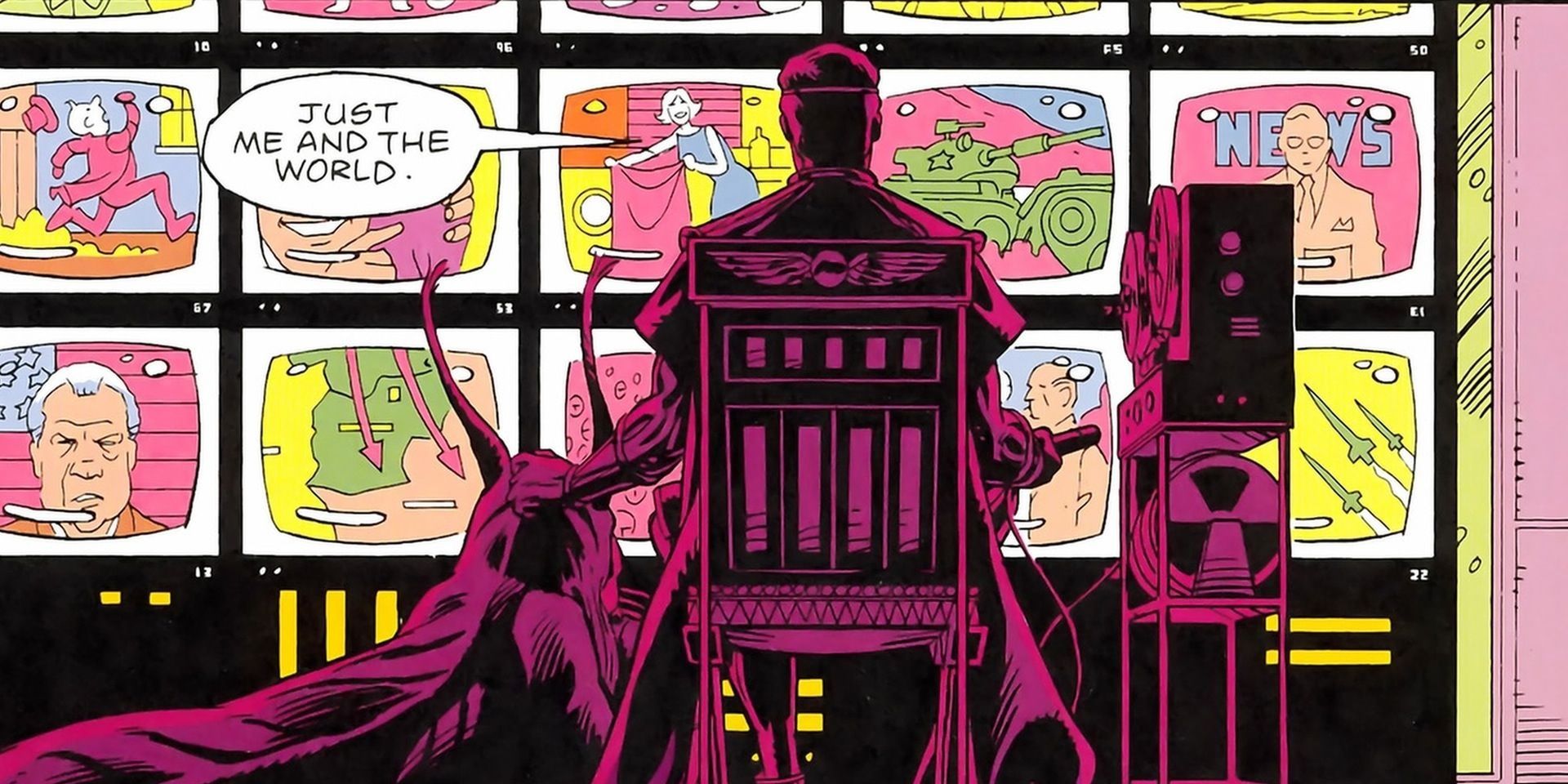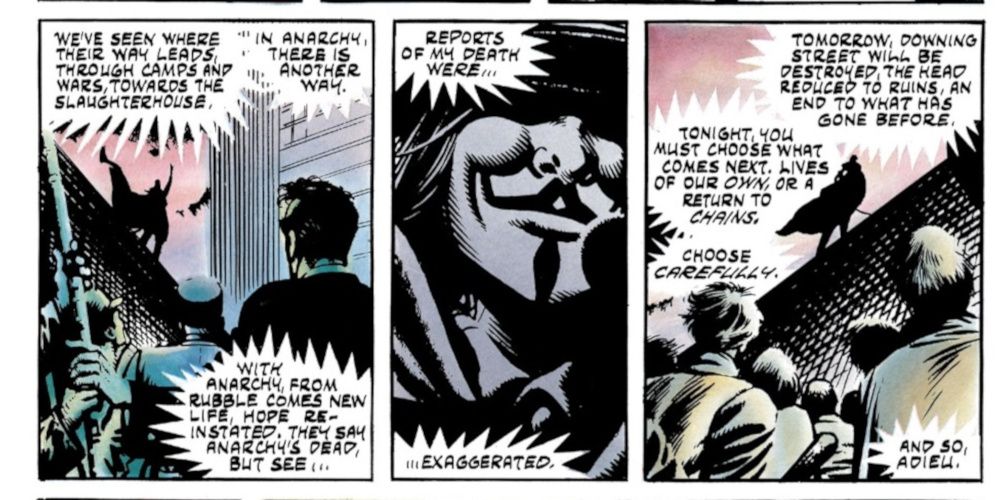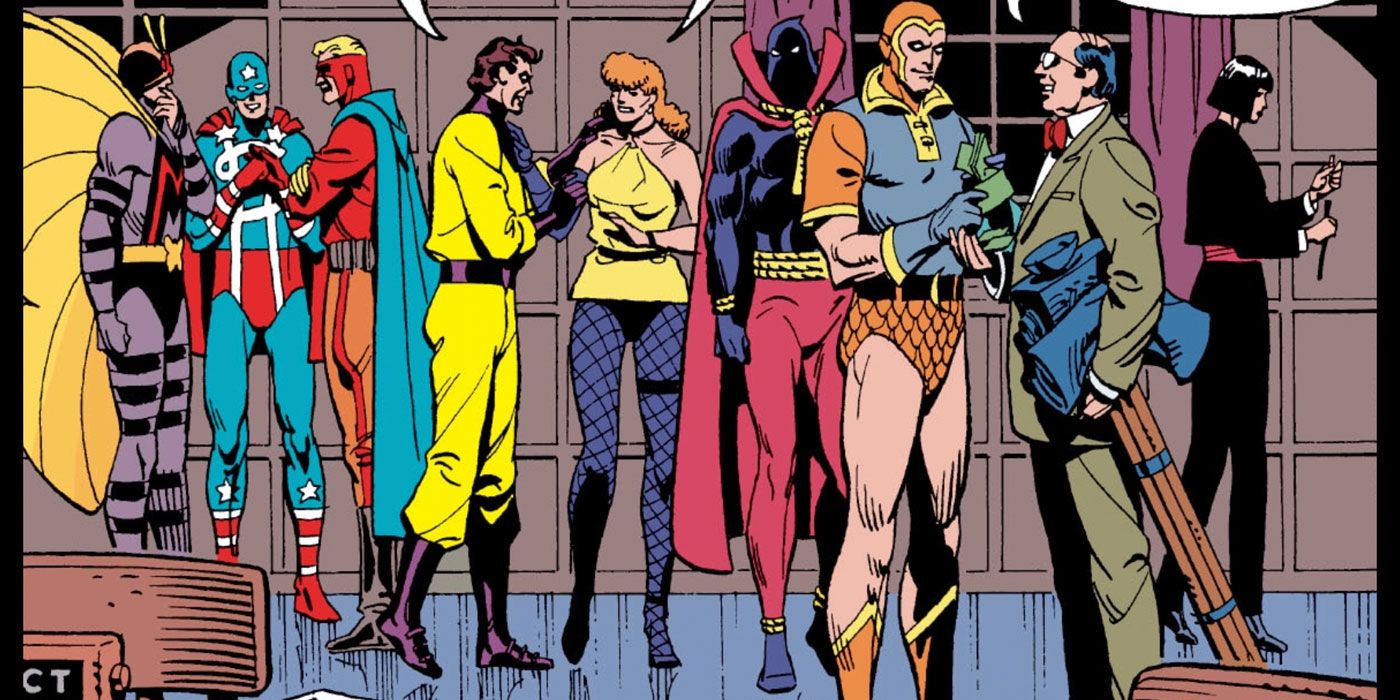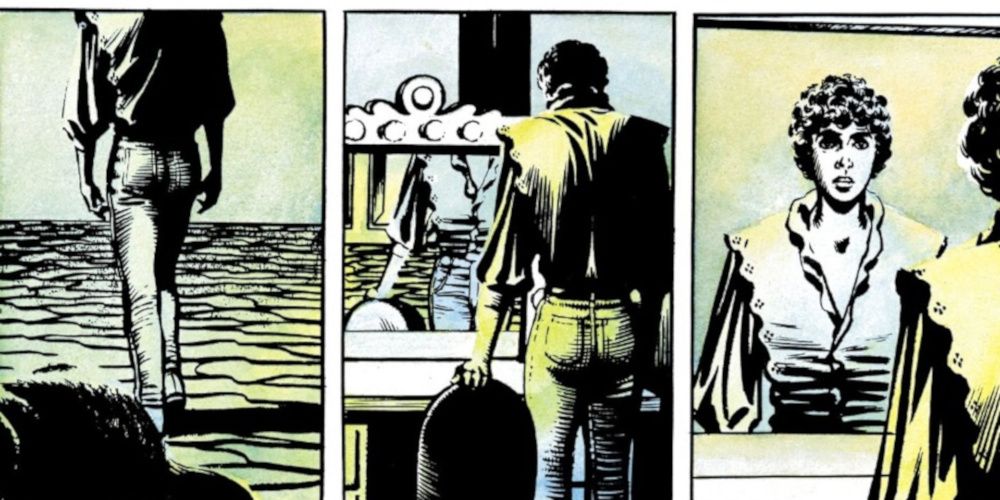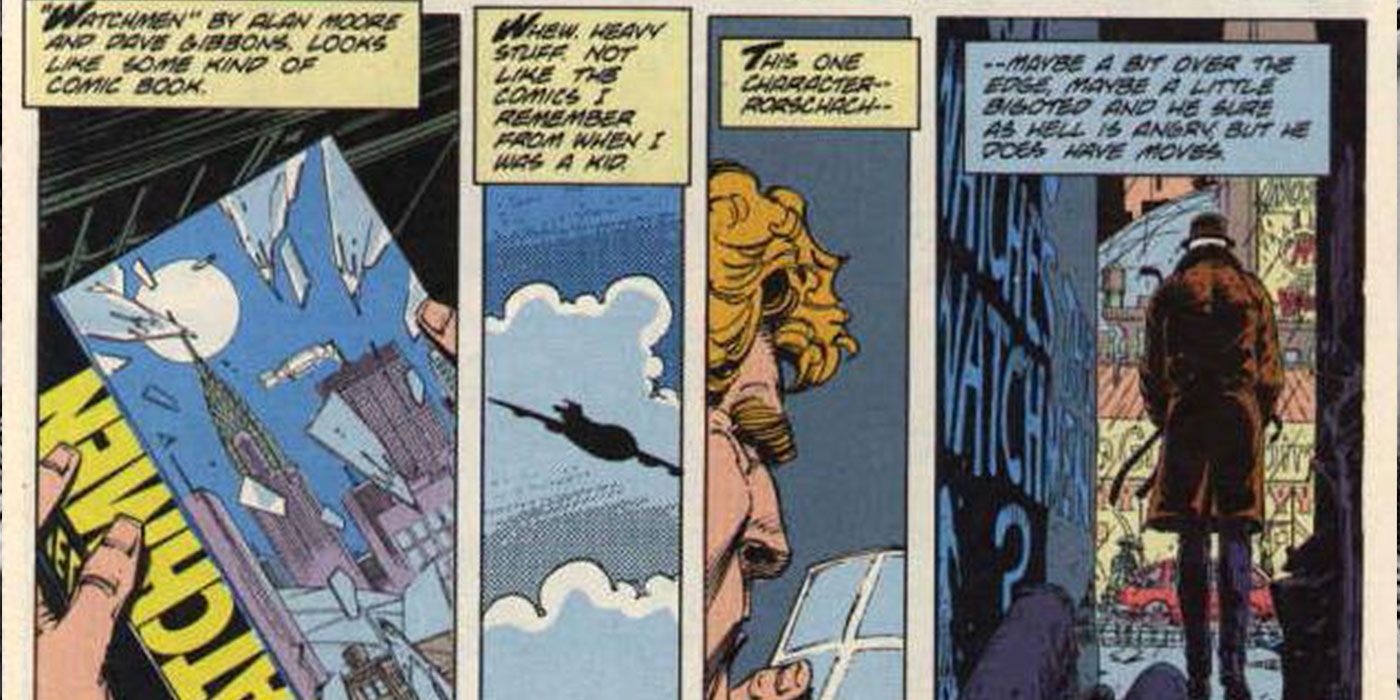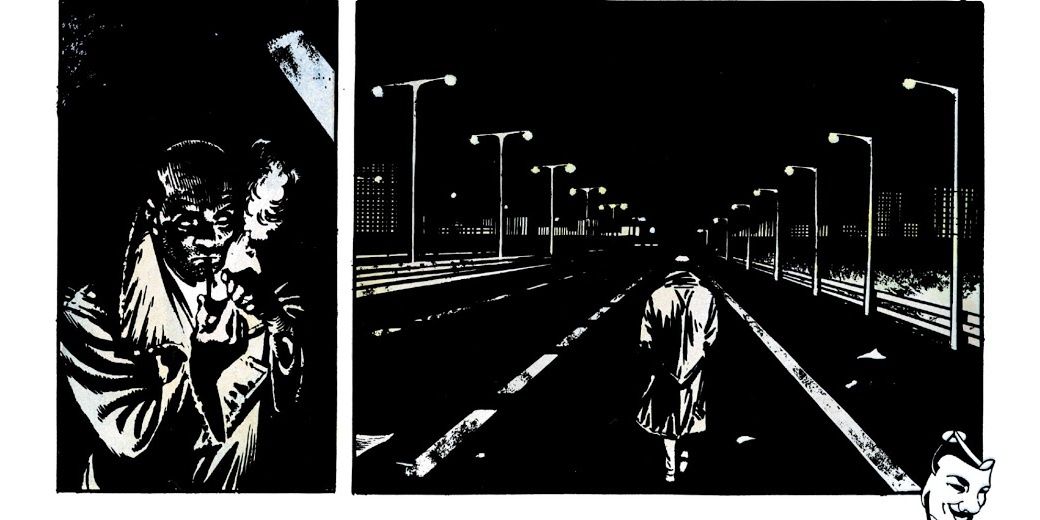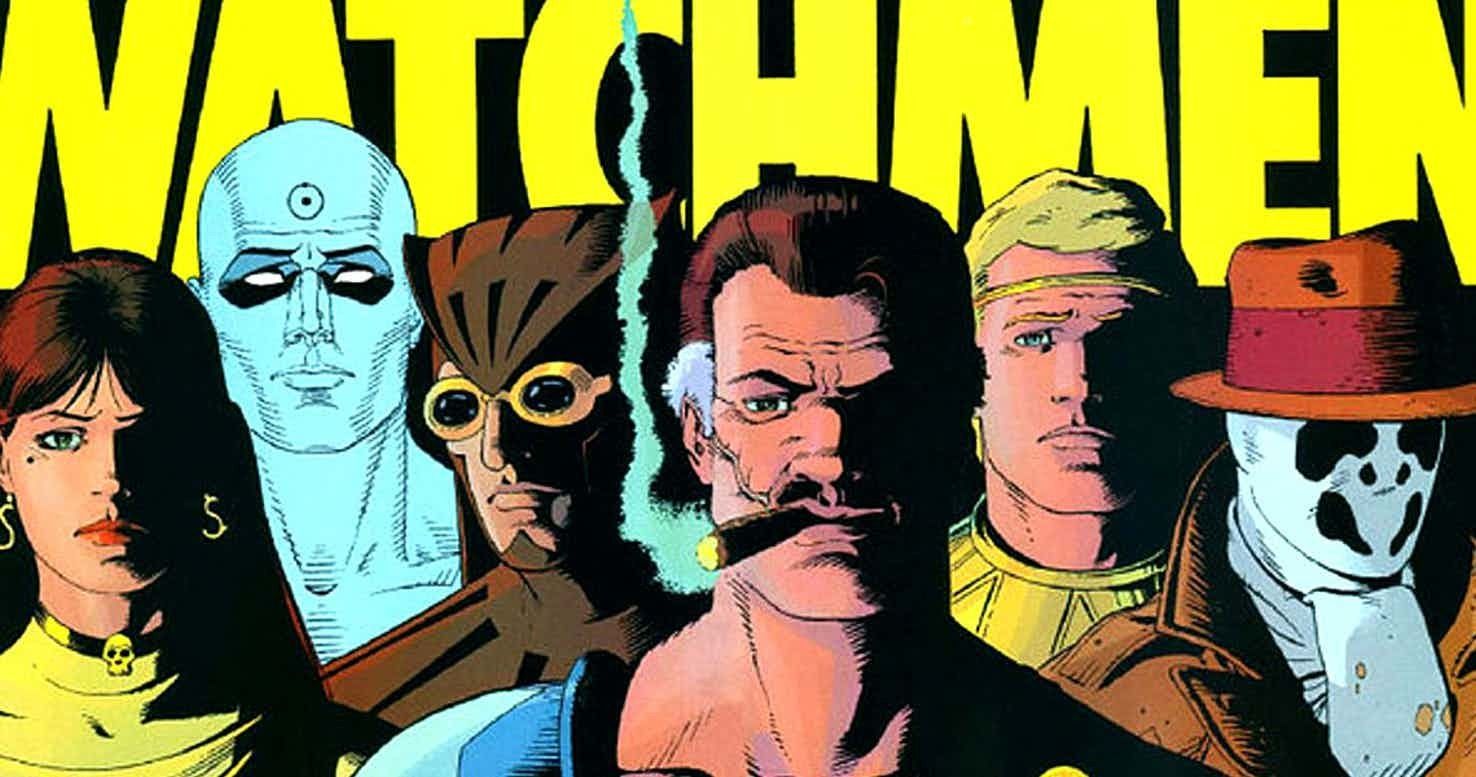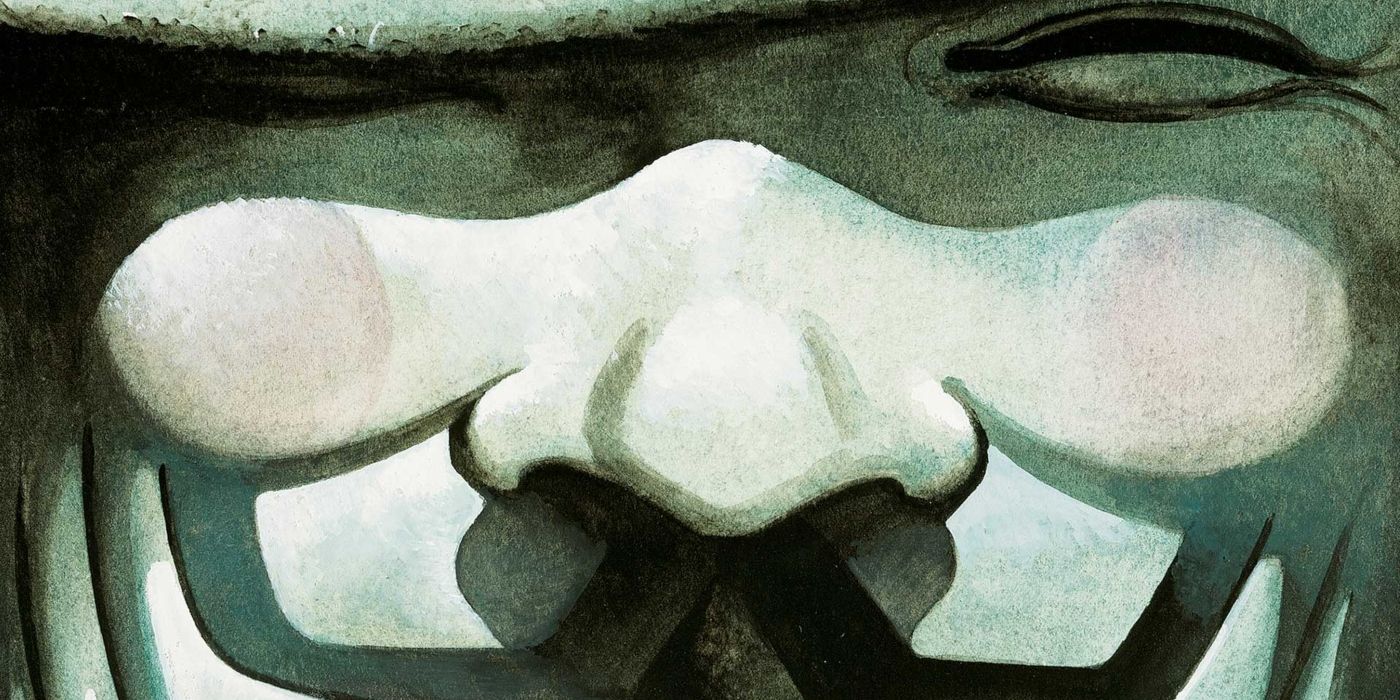Alan Moore is the most influential comic book writer of the 1980s as his comics have pushed the medium into a new direction. Of the various works produced by Moore during that decade, the two most highly-regarded comics are V for Vendetta and Watchmen.
While V for Vendetta and Watchmen are similar in that they are darker takes on superheroes and takes place in dark alternate timelines, beyond those surface-level similarities, these works are different in many ways. These differences provide points to argue that one work is better than the other. Here is an examination of both works to determine why each work can be considered Alan Moore's best.
10 Watchmen: The Artwork
While David Llyod's artwork for V for Vendetta works well with the narrative's themes, the comic suffers from its muted coloring that makes the comic both appear rather bland and makes it harder to read than if it was just black and white.
Watchmen's art is more vibrantly colored, which does a great job setting the mood for its scenes quite well. Watchmen's art is also great thanks to Dave Gibbons' mastery of the page layout. Gibbons' talent at arranging panels makes Watchmen one of the few comics to use the layout as a storytelling technique.
9 V for Vendetta: More Relevant
Both works are heavily shaped by the fear of increasing nuclear tensions during the 1980s. This concern is less central to V for Vendetta with it serving more as set up for the rise of fascism in England.
The fact that V for Vendetta deals with V seeking to bring down a Fascist government makes the work a lot more relevant than Watchmen. The comic focuses on why people are willing to work for a fascist government, why these governments arise, and why they tend to ultimately collapse. Given recent events in the U.S. and in global politics, V for Vendetta is more relevant than Watchmen's focus on Cold War-era nuclear tension, which is less relevant, even though there are still instances of nuclear tension between countries today.
8 Watchmen: A More Engaging Antagonist
In V for Vendetta, the members of Norsefire represent the banality of fascism with them being depicted as either pathetic, self-serving, or sometimes both. While these depictions work well with what Moore wants to say about fascism, it does not make for compelling antagonists.
Watchmen, however, has an antagonist that is considered one of the medium's most memorable. That antagonist would be Ozymandias, a man who like all good villains is only considered one by his deeds rather than his motivations. Ozymandias is also a great antagonist as he serves as a good summation of Watchmen's main theme of should a superhero tries to save a world that might not want to be saved.
7 V for Vendetta: More Reflective Of Moore's Worldview
Alan Moore is one of the few comic book writers known for his views as much as his writing. The content of Moore's works often reflects his pro-anarchist and mystical views. While Watchmen might be his most famous work, those elements are relatively muted compared to his other works.
V for Vendetta is very much shaped by Moore's political views. V is very much reflective of Moore's anarchist beliefs, with the character believing that anarchism is the only form of government that truly provides freedom to the people. The work also takes some mystical approaches towards how characters like Evey and Eric are transformed throughout the story.
6 Watchmen: A More Fleshed-Out Setting
This entry is not saying that V of Vendetta has horrible world-building with it doing a great job in developing its setting and giving the impression of a larger world. This statement just reflects the fact that Watchmen blows V for Vendetta's worldbuilding out of the water.
Watchmen fleshes out its setting by directly addressing how the real-life existence of superheroes would alter the course of history. The series also spends half of its issues providing the backstories of the story's main characters. Watchmen also includes in-universe documents that both highlight the story's theme, but also tell the reader that more stories are going on in the world beyond the events of the comic.
5 V for Vendetta: Stronger Female Cast
A notable criticism for Watchmen is that the series is very sparse when comes to having noteworthy female characters with Silk Spectre and her mother being the only examples, and even then, their depictions are not the greatest representations of women. V for Vendetta does not have this problem to the same extent that Watchmen does.
Compare to Watchmen, V for Vendetta is very much driven by female characters. These examples range from the closest thing the series has to the main character is a teenage girl to V's ambiguous gender identity and that he was inspired in his one-man war by the unjust suffering of a female prisoner, who is given a decent amount of fleshing out. Even the final action that collapses the Norsefire government was conducted by a woman whose life was ruined by the government's treatment of her. While the women in V for Vendetta still receive mistreatment and the healthiness of Evie and V's relationship is questionable, the comic still does a better job of depicting women than Watchmen.
4 Watchmen: More Impactful On The Medium Itself
As stated earlier, Watchmen is Alan Moore's most well-known work. The reason for this fame is thanks to Watchmen having a major impact on the comic book industry and beyond. This impact on other fictional works is something that is less talked about with V for Vendetta compared to its real-world impact.
Watchmen, along with The Dark Knight Returns, are considered turning points in the comic book industry in that their success told publishers that there was a market for darker takes on Superheroes. This led to the Dark Age of Superhero comics. Many writers, like Damon Lindeloff and Tom King, in the comic book industry and beyond have also cited Watchmen as a major influence on their work.
3 V for Vendetta: A More Hopeful Ending
While Watchmen ends with the threat of mutual nuclear annihilation being resolved, it does so in a very cynical manner. The ending of Watchmen pretty much states that it might better to lie to mankind that there is a threat of unearthly origins rather than telling the truth to prevent self-annihilation.
V for Vendetta, comparably, has a more cautiously hopeful ending with taking the view that mankind can recover from its mistake if the right individuals lead the way. This hopefulness is presented by the series' ending implying that British society will be rebuilt into a much better state, now that the new V is the leading figure in Britain.
2 Watchmen: Leaves Less Questions Unanswered
Compared to V for Vendetta, Watchmen is more approachable. This approachability comes from many reasons from the more pleasing artwork to the fact that Watchmen is still rooted in familiar superhero tales. Another reason is that Watchmen answers most of its driving questions.
By its conclusion, Watchmen has answered most of its driving questions in a clear and defined manner like, "Who kills the Comedian?" Comparably V for Vendetta leaves readers the responsibility of answering questions like V's true identity and how he was able to access the Fate Supercomputer.
1 V for Vendetta: Does Not Give You Clear Answers
While Watchmen answers most of the reader's questions through the course of the story, V for Vendetta does not. For those that prefer for their fiction to leave them with questions, this gives V for Vendetta a point in the contest for superiority.
As described earlier, V for Vendetta does not answer the driving question of "Who is V?" While the story provides V with an origin, we are not provided any information about his life before being imprisoned in a Norsefire's Concentration Camp. This leaves a mystery for readers to think about beyond their first reading that makes them want to engage with the comic upon further rereading.

